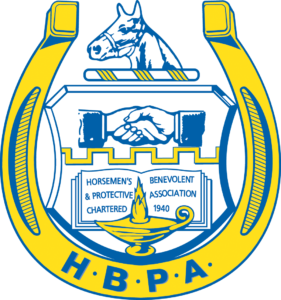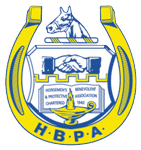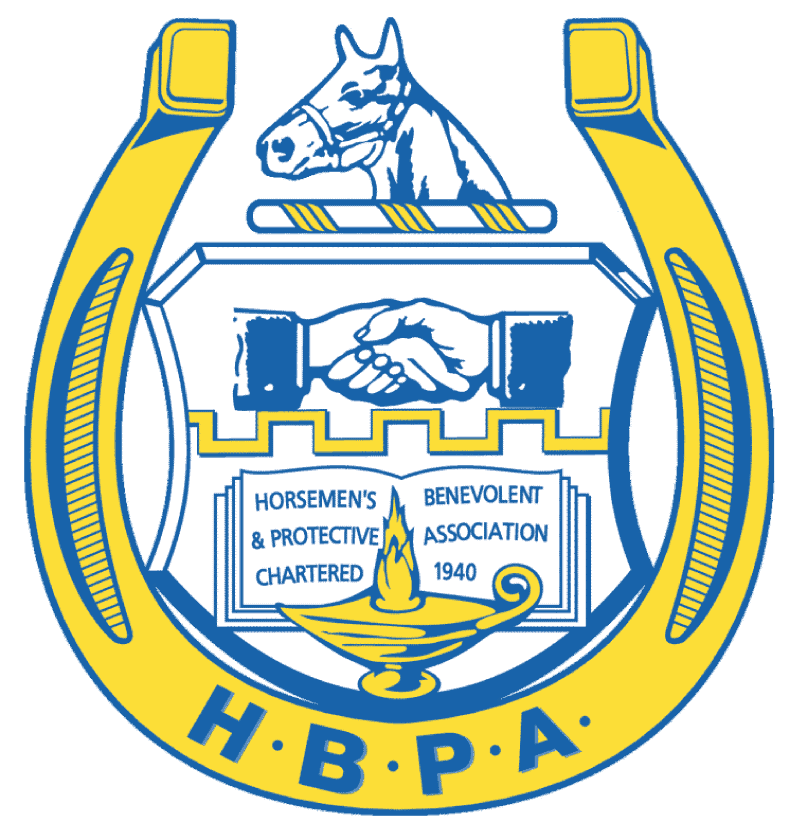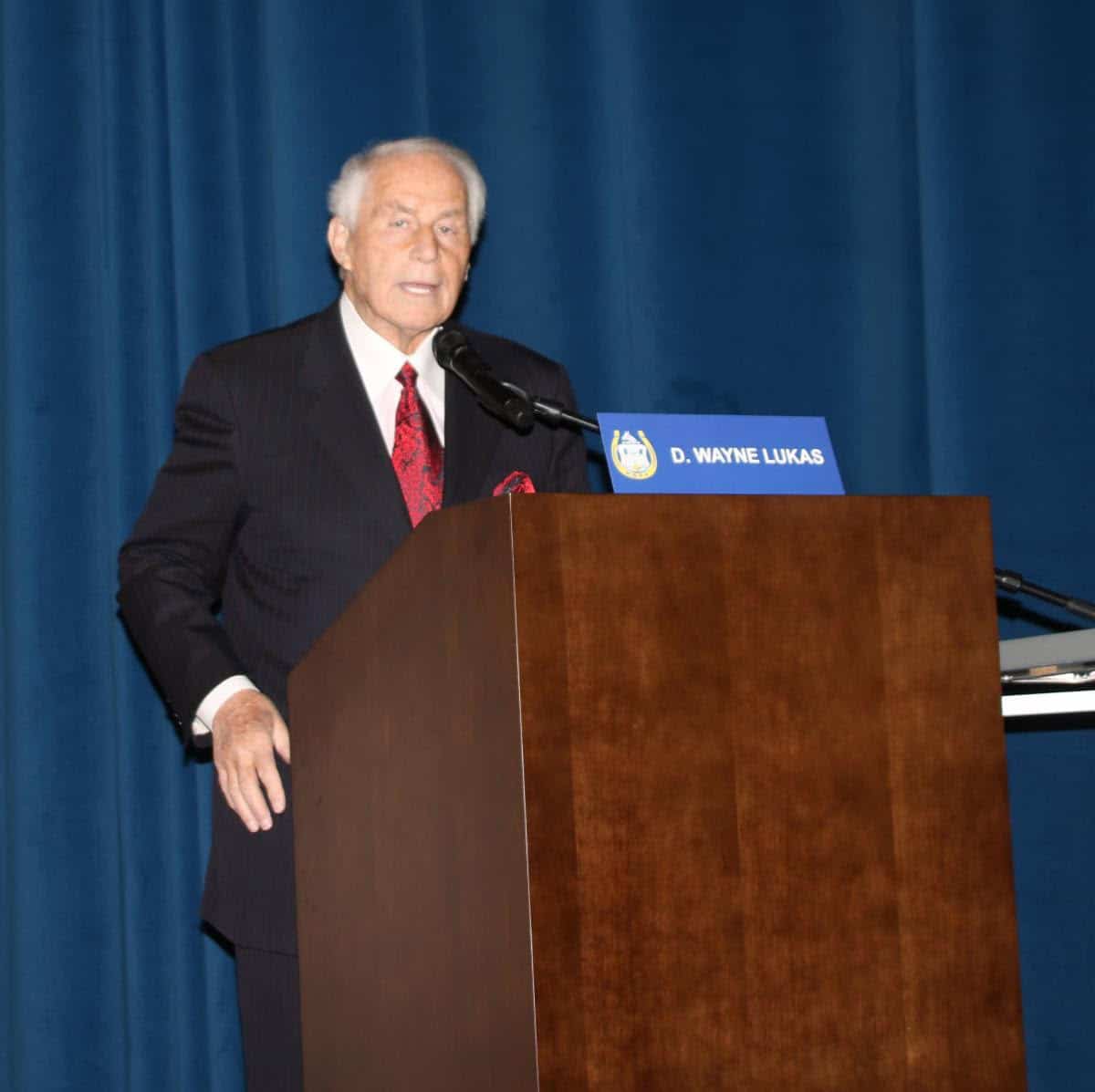Racehorse owners and trainers file lawsuit to stop unprecedented, federal authority given to private group to regulate the industry
 U.S. Congress created a private organization with federal authority to make laws, issue subpoenas and collect money
U.S. Congress created a private organization with federal authority to make laws, issue subpoenas and collect money
LUBBOCK, Texas (March 15, 2021) — Organizations representing Thoroughbred horse owners and trainers have filed a federal lawsuit to stop a new law in which Congress punted on its legislative duties and, instead, handed the power to regulate horse racing over to a private group. Under the law, this elite group within the industry is allowed to monopolize power and change not only the rules, but the federal laws that govern horse racing across the country.
In the Dec. 2020 COVID-19 stimulus plan, the U.S. Congress tucked in this pet project pushed by elite horseracing interest groups. With the passage of the Horseracing Integrity and Safety Act (HISA), Congress ends 125 years of state regulation and nationalizes control over horse racing by creating and ceding federal lawmaking power to a private, nongovernmental body called the Horseracing Integrity and Safety Authority, or the “Authority.”
The National Horsemen’s Benevolent and Protective Association (National HBPA) and state affiliates in Arizona, Arkansas, Indiana, Illinois, Louisiana, Nebraska, Oklahoma, Oregon, Pennsylvania, Tampa Bay Washington and West Virginia, are suing the newly created “Authority” and the Federal Trade Commissioners, who are tasked with nothing more than rubber stamping their rules. In addition, they are suing the Nominating Committee and asking the court to immediately stop them from appointing the Board members of the Authority. They are represented by attorneys at the Liberty Justice Center, a national public interest law firm that defends constitutional rights.
“All Americans should be concerned when Congress gives power to regulate an entire industry to a private group of industry insiders,” said Brian Kelsey, senior attorney at the Liberty Justice Center. “This goes way beyond setting rules for the sport of horse racing. This is not the NBA or the NFL. The ‘Authority’ has the power to make laws, issue subpoenas and effectively tax owners with little real oversight. Placing that power in a private organization is illegal and must be stopped.”
The National Horsemen’s Benevolent and Protective Association and its affiliates effectively held back the passage of HISA since it was first introduced in 2015. Opponents on Capitol Hill repeatedly pointed out that HISA illegally delegated power to a private entity. Despite the pushback, the measure was covertly added to the Dec. 21, 2020, COVID-19 stimulus. Now, moneyed horseracing competitors have carte blanche from the federal government to control an industry that also serves as the primary livelihood for many HBPA members and an economic driver in many states such as Kentucky, Louisiana and Pennsylvania.
“There’s a real concern among Thoroughbred horse owners that this could put us out of business,” said Bill Walmsley, president of the Arkansas HBPA. “By passing HISA, Congress picked winners and losers and put well-connected owners in charge of horse racing across the country. There was no serious debate or discussion about the costs, let alone the legality of creating a private group to control horse racing.”
The lawsuit, National Horsemen’s Benevolent and Protective Association v. Black, was filed on March 15, 2021, in the U.S. District Court for the Northern District of Texas. To read the lawsuit and information about this case, visit: https://libertyjusticecenter.org/media/horse-racing/
Background
The Horseracing Integrity and Safety Act (HISA) was first introduced by U.S. Reps. Paul Tonko (D-N.Y.) and Andy Barr (R-Ky.) in 2015. After no movement on the bill for five years, Sen. Mitch McConnell (R-Ky.) announced his support in Aug. 2020. It was passed by the U.S. House of Representatives the next month and then passed the U.S. Senate as part of the Federal COVID-19 Relief Bill on Dec. 21, 2020.
HISA creates an unelected, national board, the “Authority” to replace the current state regulatory structure, and it allows the Authority to impose new fees and costs on the industry. The majority of those who will have to pay the fees are working class horsemen and women.
Proponents claimed that HISA would bring uniformity and safety to the sport; however, congressional opponents repeatedly criticized the unprecedented power and unfunded mandate given to the appointed nine-person board of the Authority. A large percentage of horsemen also believe the law is not in the best interest of racehorses’ health and that the power grab by wealthy industry leaders creates more problems than it fixes.
The U.S. Constitution and subsequent foundational U.S. Supreme Court decisions say that Congress cannot delegate its legislative authority. However, HISA unlawfully gives the newly created Authority the right to:
- Draft governmental rules on equine medication and safety;
- Assess millions of dollars in fees on horse owners and trainers to finance the operations of the Authority;
- Assess civil penalties, civil sanctions, and rule violations, including levying fines and ordering suspensions of owners and trainers for alleged violations of Authority rules; and
- Issue subpoenas and otherwise investigate purported violations and commence civil actions in federal court to enforce Authority rules.
# # #
The Liberty Justice Center is a nonprofit, nonpartisan public-interest litigation center that represents clients at no charge and was founded to fight against political privilege. The most recent example of the Liberty Justice Center’s national success in this arena is its 2018 U.S. Supreme Court victory in Janus v. AFSCME. Beyond its work in the Janus case, the Liberty Justice Center’s team of talented, liberty-minded attorneys also fight to protect economic liberty, private property rights, free speech, school choice and other fundamental rights. The Liberty Justice Center pursues its goals through strategic, precedent-setting litigation to revitalize constitutional restraints on government power and protections for individual rights. Learn more about the Liberty Justice Center at LibertyJusticeCenter.org.
National HBPA Concerns with Horseracing Integrity and Safety Act of 2020
Senator Mitch McConnell’s (R-KY) Horseracing Integrity and Safety Act of 2020 (HISA) has been passed into law. The bill takes regulatory authority from state racing commissions and creates a new regulatory body responsible to the Federal Trade Commission. The new federal authority plans to establish and enforce a national racing medication and track safety program for the horse racing industry by the summer of 2022. Senator McConnell originally announced his legislation was a compromise within the industry, but that remains far from the truth. There was no industry compromise because there was no consulting with the National Horsemen’s Benevolent and Protective Association (HBPA), which represents close to 30,000 racehorse owners and trainers in 26 racing jurisdictions within the United States.
The National HBPA has reviewed the newly enacted legislation and affirmatively states that our concerns with the HISA remain for the health of the horse and the health of our industry. The reasons are as follows:
- Banning Lasix before studying it “is putting the cart before the horse,” as Representative Kurt Schrader (D-OR), a veterinarian, stated during the September 9 markup of the companion legislation in the U.S. House Energy and Commerce Committee. The legislation works to phase out an important, protective medication, commonly known as Lasix, over the next three years. Lasix is the only known medication to treat a condition called Exercise Induced Pulmonary Hemorrhage (EIPH), or bleeding in the lungs. EIPH threatens the health and wellbeing of many racehorses and until an alternative treatment is developed, the National HBPA believes that Lasix should be utilized on race day. Science and national veterinary leadership continue to support the administration of Lasix on race day.
- The new authority regulating horseracing nationwide will be governed by a board with a majority of members having no experience in the horseracing industry. And the board will be handpicked by the same elite interest groups pushing this legislation.
- The legislation will be paid for on the backs of our membership. Unlike other legislation, Congress has not authorized any federal dollars to be spent on the proposed authority. The new authority will end up levying millions of dollars in fees on horsemen to pay for the new regulatory scheme. Given the economic hardships resulting from the COVID-19 pandemic, these new fees will likely put many small business owners and operators out of business.
Our concerns and opposition to HISA is not alone, yet we stand ready to be consulted on implementation on how these regulations will be put into play throughout the United States.
Finally, along with others, we continue to interpret HISA to have several serious constitutional flaws. Below you will find the HISA summary conclusion by Gibson Dunn law firm in Washington D.C. that summarizes their concerns, which are highlighted below.
- The non-delegation doctrine: Congress may not grant regulatory authority to private entities, yet HISA does exactly that in numerous ways. To describe a few, the bill delegates to the Authority the power to determine the identity of racing participants to be regulated, to commence actions in federal court to enforce its regulatory activity, and to issue subpoenas and carry out searches and seizures. These are public functions historically carried out by public agencies.
- The due process clause: prohibits an economically self-interested private actor from wielding regulatory power over other private parties. The governing body and standing committees supporting the Authority’s activities would have bare majorities made up of disinterested persons. The rest would be representatives of “equine constituencies” exerting regulatory power over other equine constituencies throughout the sport. Moreover, the Authority’s initial funding is designed to come from loans (which racing participants would have to repay), creating an incentive to act in accordance with the wishes of lenders.
- The anti-commandeering principle: To paraphrase the Supreme Court, this principle provides a structural protection of liberty by diffusing power, ensuring that voters know who to credit or blame for a particular regulatory program (accountability), and preventing Congress from shifting the costs of regulation to the states. This principle, implicit in the constitutional structure and underscored by the Tenth Amendment’s reservation of rights to the states, ensures that the states do not become “mere political subdivisions of the United States.” The HISA Authority is not accountable. The FTC’s role is passive: it was only mentioned so there would be a government agency somewhere in the bill. It would literally take an act of Congress, as the old saying goes, to do anything about the Authority’s malfeasance or wrong-headedness.
The National HBPA’s focus has always been, and remains, the health and safety of the horse, the safety of the jockey and the safety of all individuals coming into contact with the horse, including grooms, hot walkers, trainers and veterinarians. With that, the affiliates of the National HBPA remain strongly committed to the welfare of our human and equine athletes and will remain persistent in its efforts through the National HBPA to achieve national uniformity based on published, scientifically determined regulatory thresholds, with published, scientifically determined withdrawal time guidelines, all based on and supported by data published in the scientific literature. Additionally, we will continue to strive for industry reforms that are fair and beneficial for all.





